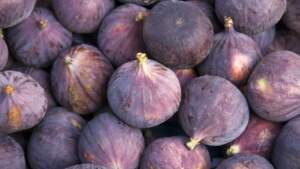Home Remedies for Constipation / How to treat constipation at home?
In this informative blog post, join Dr. Nivedita Pandey, the best gastroenterologist in Delhi, as she sheds light on the topic of constipation. Gain valuable insights into the causes, symptoms, and complications of constipation, and learn about effective management strategies and lifestyle modifications that can help alleviate this common digestive issue. Although having constipation can be quite difficult, you can try several home remedies for constipation.It is a common problem affecting all age groups. Simple lifestyle changes can ease constipation symptoms. For centuries, people have relied on home remedies for constipation to treat and manage constipation. However, constipation rarely may be a sign of a significant underlying issue. When talking about constipation, embarrassment is a frequent emotion. Therefore, you must contact a doctor if your constipation is severe or the symptoms don’t improve.
Table of Contents
Toggle
What Are the Causes of Constipation?
Constipation occurs when your stool is firm, dry, and difficult to pass. The common causes are as follows
- Inadequate water intake
- Lack of fiber in the diet
- Insufficient physical activity
- Unnecessary stress
- The rapid change in one’s surroundings
- Ignoring the desire to urinate
The following factors can also cause constipation:
- Certain medications, such as iron pills and analgesics
- Excessive laxative usage
- Parkinson’s disease, depression, multiple sclerosis (MS), and thyroid disease are all examples of medical diseases.
- Irritable bowel syndrome (IBS), diverticulitis (colon disease), and celiac disease are examples of digestive illnesses.
- When toddlers first begin eating solid foods, they may become constipated.
- When older children hold in their bowel motions, they can become constipated.
Constipation symptoms include
- Painful bowel movements
- The sensation that the bowel are not been empty
- Stools that are dry and firm
- Cramps in the abdomen
- Bloating
- The constraint for bowel movement
Home Remedies for Constipation:
There are numerous natural Home remedies for constipation. People can do these in the privacy on their own and most of them are scientifically validated.
Drink more water

Consistently being dehydrated can lead to constipation. To avoid this, drinking enough water and staying hydrated is critical. Drink additional water to help with bowel movements and prevent dry stools. You can drink clear soups, fruit and vegetable juices, and water. Drinking water and other beverages will keep you hydrated and ease constipation.
Coffee

That’s accurate. Picking up your preferred hot cup of coffee could provide you with home remedies for constipation relief right away. It might energize your colon and hasten your toilet visit. Caffeinated coffee can help you go to the toilet more frequently. The intestines’ muscles may contract as a result of caffeine. The stool may be propelled toward the rectum by this stimulation. While coffee with caffeine can help with bowel movements, it can also make you feel dehydrated.
Lemon Juice

Citric acid, present in lemon juice, can stimulate your digestive system and assist in removing toxins from your body. It is very helpful and naturally treats constipation. Lemon juice can aid in the body’s detoxification process. For intestinal stimulation, lemon juice can be added to water or tea as a natural digestive aid. Freshly squeezed lemon juice is preferable.
Ginger tea

Ginger tea has been the standard home remedy for constipation. It may also provide immediate relief from constipation while assisting in digestion. Ginger includes oils that increase your gut’s motility. After a few minutes of having ginger tea, you will feel laxative. It may work wonders to relieve constipation right away.
Milk and GHEE

Certain people may take advantage of warm milk to help stimulatethe bowels, especially when ghee is added, even if drinking too much dairy or dairy products can occasionally cause constipation. Ghee, which is made by clarifying butter, is a traditional remedy.Ghee was utilized for Ayurvedic medicine for a long time because of its curative properties. To naturally induce a bowel movement, mix two teaspoons of ghee into warm milk a day before.
Severe bodily dryness that results in a lack of lubricant in the colon causes constipation. Therefore, milk and ghee can provide the lubricant the gut muscles require to assist stool passage.
Figs

Figs, referred to asAnjeer, can provide immediate relief from constipation when soaked in warm water. It is very well-regarded and has a lot of fiber. The most effective home remedy to treat constipation in children is thought to be anjeer. One of India’s biggest hygienic issues is constipation. Taking laxatives is a common solution that many people try. But these laxatives are bad for your health; they won’t remain forever, even when you utilize them too much, they might harm you in other ways.
Coconut water

You can stay hydrated and detoxify using coconut water. The digestive tract is stimulated, and renal function is increased. Magnesium, a mineral naturally found in coconut water. It aids in the removal of feces away from the body through the muscles that line the intestinal wall.
Increase your intake of fiber.
Consuming foods high in fiber into your diet will help you manage your bowel movements, by expanding your stool while allowing it to move faster through your intestinal tract.
A fiber-rich diet may help cure and prevent constipation. You can consult with a dietitian or healthcare expert to develop a diet that includes a range of fiber-rich meals. You should also gradually include fiber into your diet to ensure your body becomes accustomed to processing it. Some well-known fiber sources include
- Lentils
- Chickpeas
- Black beans,
- Wheat bread
- Oatmeal
- Broccoli
- Carrots
- Green peas
- Almonds
- Peanuts
- Apples
- Black Berries
- Oranges
- Avocado
EXERCISE
Most individuals frequently overlook the value of routine exercise when considering home treatments for constipation. Physical activity is known to speed up the passage of food through the intestines. Walking or running may therefore stimulate the muscles in the colon and intestines. Making this a regular part of your routine is a cost-free and efficient home remedy for constipation. Exercise improves your abdominal muscles’ strength and helps you evacuate your bowels more frequently. The abdominal muscles aid in bowel movement. Regular exercise makes the abdominal muscles stronger and speeds up bowel movements!
Abdominal massage
Abdominal massage is a beneficial home remedy for constipation. Press the abdomen clockwise while lying on your back for about 10 minutes. This massage can be performed twice daily. The colon’s stools are propelled towards the rectum by rotating clockwise. Before the massage, sipping hot tea or water assists the digestive system even more. Constipation is a common but uncomfortable condition that can make daily activities difficult. You can manage and ease your symptoms by making lifestyle adjustments and using home remedies. Bananas, chickpeas, leeks, guava, and dates are typical kitchen items used as natural cures for constipation. Other efficient approaches to control constipation include increasing water and fiber intake in the diet and engaging in regular exercise. Contact your healthcare professional if your symptoms don’t go away and you go three days without having a bowel movement. Constipation can also indicate serious underlying health conditions that require medical treatment, so it’s important to get a professional opinion rather than self-medicate or rely on home cures.
Also Read:


